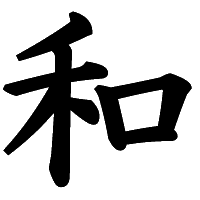A few weeks ago, a perspective opened: all our suffering is a projection of our thoughts. There is nothing out there that causes us to suffer. Nothing. All our suffering is created by our way of interpreting what is out there, by how our system—our biological-psychological system—generates our experience. (It is important in this conversation to distinguish pain from suffering—pain is an unavoidable dimension of being alive; suffering is not.)
I am not saying that reality exists only in our experience, but I am saying that our perception and understanding of reality exists only in our experience: there is no reality for us beyond that which we experience. Again, that does not mean that there are not events happening beyond our experience that affect us, but that they do not exist for us until our experience is affected.
Much of the time, we are entranced by the projection of our system—we see events to fear, rivals to best, our past failings, a lack of meaning. These projections give rise to our suffering, showing up in the form of pervasive negative moods (see my entry “Recognizing the Moods of Suffering” for descriptions of the moods). The possibilities we see, and the moves we see available to us, are shaped by these projections, by what we believe to be true.
If we believe we have to compete for everything, when we look at others, they will show up as rivals. If we believe we need to impress others, we will see other people as potential audiences who can grant us approval. The beliefs “in here” generate the experience of “out there.”
But, you might object, there are still people out there—other people do not exist only in our heads. Yes, they do not. But our experience of others does. And our suffering exists in our experience, not outside of it. What we notice, how we interpret what we have noticed, how we respond to our interpretation—these dimensions are all shaped by our orienting beliefs.
Furthermore, if I believe I have to compete with others, I will focus on rival-like behavior in others, ascribe rival-based motives to them, and then respond as a rival. That my way of acting may trigger similar behavior in another builds support for my original belief, making the belief seem even more true than before. The world comes more and more to resemble my beliefs.
What about situations we assess as threatening or unjust? Recognizing these situations is important and our responses should be appropriate. But distinguish between being present to the situation and responding appropriately, from being caught in a crippling narrative about it. Our suffering about the challenges we see in life is not caused by others—it is a product of our own systems.
But what about truly painful situations in life, such as the loss of a loved one? In those cases, most of us will experience the pain of loss, usually in the form of grief, which I see as a healthy period of adjustment. Grief as pain diminishes over time. Grief enshrined in a narrative can become a permanent form of suffering. The challenge is to experience our emotions, including being sensitive to what they may reveal, without falling into narratives that that leave us suffering indefinitely.
If all suffering is a projection of our thoughts, of our beliefs, is the solution to attempt to replace our negative beliefs with positives ones? I think not. If we see the world as full of rivals, attempting to believe that everyone is a friend risks creating an enforced naiveté (I want to see the world a certain way, so I will ignore anything that does not support that view). Furthermore, attempts to impose new beliefs on our experience can lead us to denying our experience. If I decide to believe that there is nothing to suffer about, when I find myself in anguish, I may refuse to acknowledge the experience that is present right now, thereby creating suffering.
I think the real freedom comes from seeing the underlying mechanism: the suffering I experience is a product of my own system, specifically of beliefs the system currently holds. As we dissolve major beliefs (see my entry “Dissolving Beliefs that Generate Suffering”), we also reveal the mechanism, which is liberating. As inside, outside.

Chris, thanks for sharing your post. I agree that our suffering is our own creation, based on our assumption that we are all separate. As long as we engage in “othering” there will be opposition/suffering. Thanks for the work you are doing.
LikeLiked by 1 person
Chris, I really enjoyed your thoughts here. I’ve been thinking about the idea of abandonment. No one ever abandoned me. I shut them out, refused to interact with them. By doing so I increased my feeling of separateness which is also a construct. I blamed them for my own perceptions and interpretations of what they had “done” to me. So, yes, I create all of my own suffering.
LikeLiked by 1 person